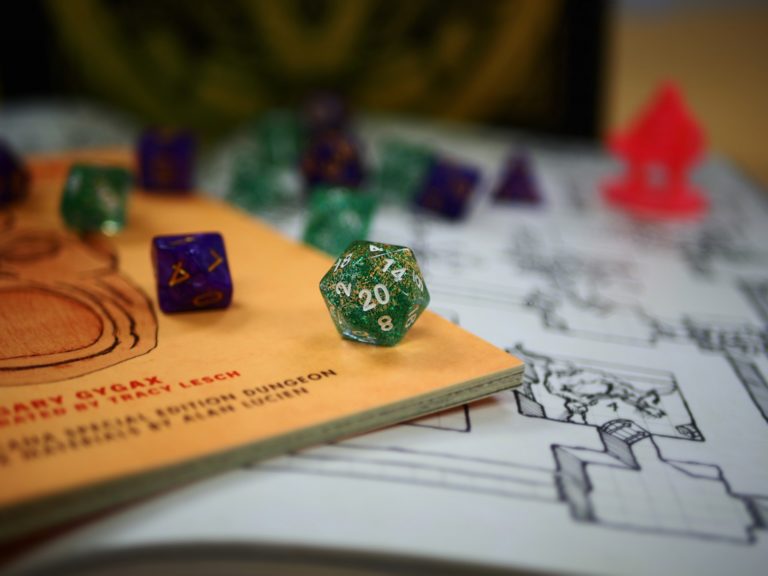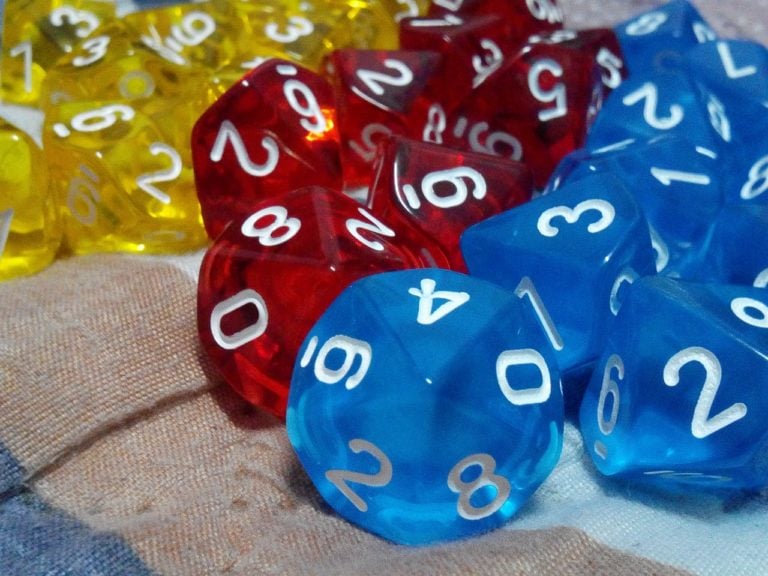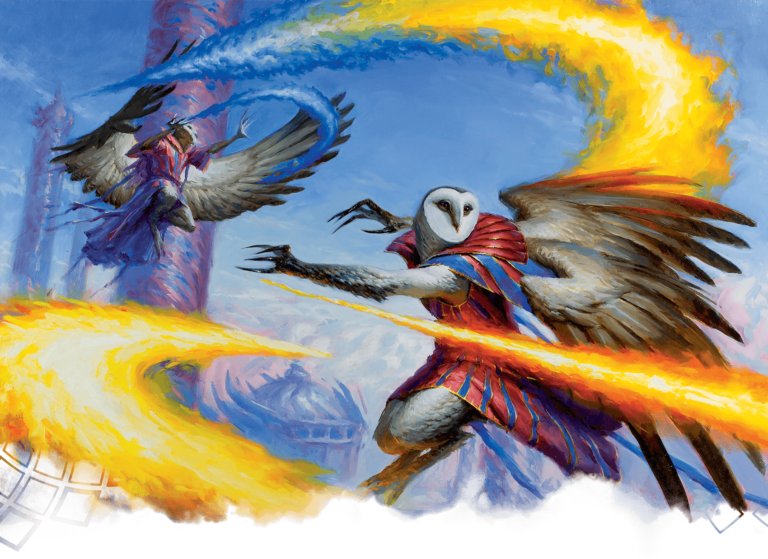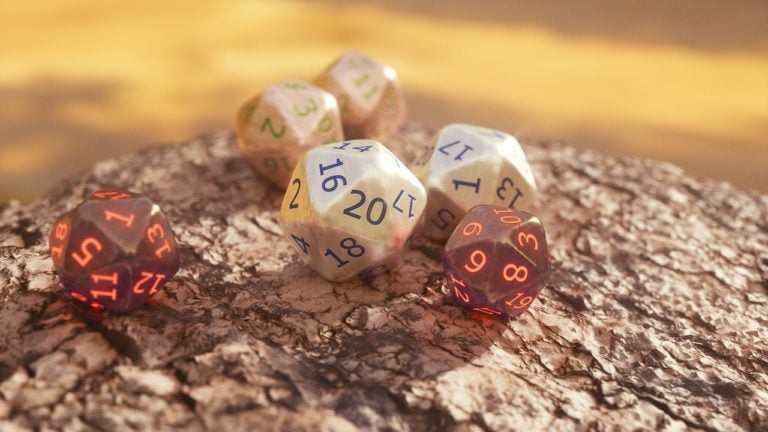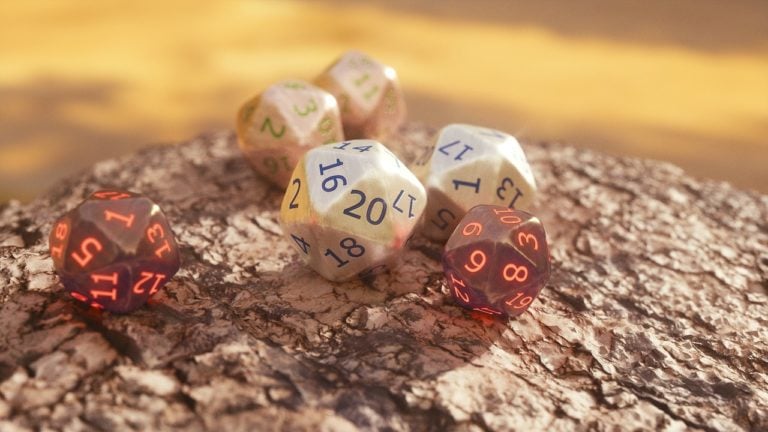Divination Wizard 5E | Breaking Down the School of Divination
Divination: The original party trick! You don’t have to study Wizardry to have a crystal ball and make guesses about the future. Thankfully, in Dungeons & Dragons, you can actually research ways to tell the future. This subclass – an essential edition from Player’s Handbook – is the most important Wizard for times of peace. Being able to perfectly prepare for droughts or bandit attacks can save a farmer’s life… and knowing about a revolution that has been secret for generations is essential for nobles. That’s just times of peace, or barely held back strife. How could a Diviner be useful for dungeoneering? Let’s find out in our Divination Wizard 5E Guide.

Table of Contents
See the Future: Divination Wizard 5E
The Diviner is a basic archetype for the Wizard class with a few very strong abilities. Divination as a 5e wizard school is all about preparation; you can win any fight if you know what’s in there. The issue with Divination is how limited spell slots are in 5e, but you get a fantastic ability in this subclass that circumvents that. You’ll still be a backline Wizard, relying on Cantrips and spell slots to deal damage… but you and your entire party will know every trick the GM wants to throw at you.
Divine Savant
But first, the Savant skill that every single PHB Wizard learns.
Beginning when you select this school at 2nd level, the gold and time you must spend to copy a Divination spell into your spellbook is halved.
There’s a big problem here. Unless you’re fighting specific types of enemies, most villainous Wizards don’t have much Divination magic. You might get lucky and get some basic wizard spells like Tongues or Clairvoyance before level 5, but realistically? Enemies just don’t have a reason to take Divination. If your GM is kind enough to let the party chill at a big town with a Library, then you might be in luck.
But make sure you take the essential divination spells; Clairvoyance, Locate Creature/Object, Scrying, Tongues… You can take some combat centric spells with Mind-Spike or See Invisibility as well. You’ll really want those so you can best do your job and prepare for ahead combats.
Portent
All Wizards gain 2 level 2 abilities. This one might be one of the best abilities in the game, let alone out of level 2s.
When you finish a long rest, roll two d20s and record the numbers rolled. You can replace any attack roll, saving throw, or ability check made by you or a creature that you can see with one of these foretelling rolls. You must choose to do so before the roll, and you can replace a roll in this way only once per turn.
Each foretelling roll can be used only once. When you finish a long rest, you lose any unused foretelling rolls.
Dungeons & Dragons is a dice-based franchise. You roll a dice, you get a result, people may or may not have you reroll. There’s not much else to do – you live and die by the roll. In older editions, you could circumvent the dice by having ridiculously high modifiers. But in 5e, you don’t really get that options.
Knowing exactly what you rolled is one of the strongest abilities possible.
Roll two low dice? Well, now an enemy just failed their saving throw against you. Roll two high dice? Well, now the Barbarian just landed a hard hit, and you saved against Hold Person. Roll two middling dice? Well, you just negated a crit on yourself and had the rogue succeed on a trap disabling.
No matter what you rolled, you can find a use for it. And you can target anyone, at any time, no saves allowed. That’s absolutely insane.
Of course, there’s only one problem; you only get two of them. The intense limitation of Portent is the only reason why it’s legitimately balanced – You have to spend them to save lives or spell slots. If you’re having trouble spending Portents, then remember that your goal is to either reduce or increase damage. Use large dice on attack rolls to end fights faster. Use small dice on attack rolls to prevent your Monk from getting Divinely Smited. It’s all situational and you’ll certainly get used to it.
Expert Divination
Divination has an issue. In 5E, you don’t get that many spell slots. Not compared to 3.5, at least. That means that, the more you dedicate to preparing and gathering information, the less you can use to dish out damage. Well… That used to be the case, at least. Now it’s different.
Beginning at 6th level, casting divination spells comes so easily to you that it expends only a fraction of your spellcasting efforts. When you cast a divination spell of 2nd level or higher using a spell slot, you regain one expended spell slot. The slot you regain must be of a level lower than the spell you cast and can’t be higher than 5th level.
Wow.
So, the level requirement is a bit of a misnomer. All level 1 divination spells currently released are rituals, so you can weasel your way out of spending those slots. Level 2 and 3 spells are where Divination gets good. And now, when you spend them, you can relearn a spell you had prepared earlier. That means you can keep spamming low-level magic damage – for example, Scorching Ray – while being able to stay prepared for combat. That’s pretty great!
And the other level requirement – no higher than a 5th level spell – is actually also a bit unnecessary. Currently, Foresight is the only Divination spell above level 6. Admittedly, Foresight isn’t an awful spell, so you might want to consider casting it (although there might be better things to do with your 9th level slots). But then you regain a 5th level slot, so that’s still really worthwhile.
The amount of slot efficiency in this one ability is quite potent; Especially since there’s still spells like Mind Spike which deal damage and are divination. You won’t have to think as hard when you’re deciding whether or not to cast Divination in the future.
The Third Eye
The only mediocre ability that you get is at level 10, and… It’s not bad at all. You spend an action to get a vision or language buff;
- Darkvision. You gain darkvision out to a range of 60 feet.
- Ethereal Sight. You can see into the Ethereal Plane within 60 feet of you.
- Greater Comprehension. You can read any language.
- See Invisibility. You can see invisible creatures and objects within 10 feet of you that are within line of sight.
That lasts until you get K.O.’d or until you rest, and this refreshes on a rest.
Neat.
So, Darkvision is by far the most generically useful option out of these. If your race didn’t come with Darkvision, then being able to see in dungeon scenarios without relying on torches tends to be smart. However, you could cast the Darkvision spell with a level 2 spell slot – which aren’t amazing anymore – and that’ll cover your back. If you want to save slots for Detect Thoughts or See Invisibility, then use Darkvision.
Ethereal Sight is a little bit too situational. There’s just not many times when you can benefit from seeing into the Plane. If you do, then you might want to cough up the 25 gp and use True Seeing so you can just see everything at the same time. Or See Invisibility, and get the benefits of Ethereal Sight and See Invisibility simultaneously. Thankfully, you are a Diviner, so if you are able to tell that things are about to get Ethereal, and don’t want to spend a 2nd level slot, then give it a whirl.
Greater Comprehension is neat, but thanks to Expert Divination, you don’t spend much when you cast Tongues. Or you can Ritual-cast Comprehend Languages.
See Invisibility is pitiful. If you’re within 10 feet of an invisible creature, you’re either getting your throat torn out or it’s a caster. And then you’ll get Shocking Grasped into a pile of ash. Just cast See Invisibility and save yourself the hassle.
Overall, you’ll want to take Darkvision in almost any scenario. See Invisibility covers two of them, and you don’t even need to expend a spell slot for Greater Comprehension.
Greater Portent
At level 10, Divination finally seems to be getting a little weak. And then this happens.
Starting at 14th level, the visions in your dreams intensify and paint a more accurate picture in your mind of what is to come. You roll three d20s for your Portent feature, rather than two.
Tyr’s beard, save some for the rest of the schools! I’m joking, a bit. This gives you no direct combat power, nor does it reach the same heights as other level 14s. What it does do is give Portent a 50% bonus to usefulness, giving you another dice to auto-roll at problems. That’s pretty fantastic, especially since you can start slinging around really powerful attack roll spells by now. And saving throws are getting worrisome!
This is perfect timing for Portent to get another dice, and you’ll be super happy to get it. Just… Make sure you spend your Portent dice. Please?
Best Race for Divination School Wizards
Divination Wizards gain no intrinsic benefits from Intelligence since Divination is a buff-centric school. However, you’re a Wizard. You’re still using cantrips, save spells, and attack rolls to deal damage. Get Intelligence high. Afterwards, the world is your oyster. Consider your Dexterity and Constitution next. And maybe Wisdom if you’re super concerned about saving throws (though your Proficiency should cover you there!).
Human
Humans are good at any role you slot them in, so Divination works just fine for them! You’ll want to be a variant human, with a +1 in Intelligence and then +1 in Dexterity or Constitution. Then you have a few options. Spell Sniper lets you stay away from combat and make good use of Portent. Alert can let you throw spells out early on to help counter enemy tactics. Observant can make surprises happen less often, and gives another +1 to Intelligence. All of these are good options that can factor into a build.
Hobgoblin
Since you don’t need your Intelligence as high as possible ASAP, this Volo’s Guide race isn’t bad. The Hobgoblin gains a +2 to Constitution and +1 Intelligence, which goes a long way to making you not die. Similarly, their Light Armor proficiency will save you a Mage Armor spell slot (though the martial weapons won’t come in too handy!). And Saving Face will usually give a +3 to attack rolls, letting you save Portent Dice if you rolled only barely a miss. The Darkvision will be sadly wasted at level 10.
Considering Hobgoblins are tyrannical overlords, the flavor makes sense as well.
A Consideration: Dragonmarked Halfling (Mark of Healing)
The Dragonmark system from Eberron: Rising from the Last War was designed as a way to build for another spell list. The Mark of Healing gives Halfling spellcasters access to some healing spells. The stats of the Mark of Healing are pretty bad, but combine this with Bountiful Luck? You’ll get one of the best supports in the game. Divination buffs, traditional healing, rerolls up the wazoo… If you want to try a suboptimal build that might become extremely effective. Talk to your DM about allowing Dragonmarks before building it, of course.
Best Feats for Divination Wizard
The Divination Wizard, much like most Wizards, focuses almost entirely on boosting their Intelligence to full and then bumping up their Constitution. However, feats can be useful to add additional utility to a Divination Wizard’s toolset.
When selecting a feat, we recommend getting things that boost the Divination Wizard’s utility and ability to spread their message quickly. We’d also recommend a feat like War Caster or Resilient (Constitution) to boost their Constitution saving throw. You want to hold concentration as reliably as possible.
Metamagic Adept
Metamagic Adept gives you two sorcery points which must be used on Metamagic, as well as two Metamagic options from Sorcerer.
When accessing the fields of magic, it’s always a good idea to consider metamagic. The Sorcerer’s special ability is so exceptionally powerful that accessing a small pool of it per day is worth the feat slot. This is like Lucky, if Lucky fundamentally changed how casters worked.
Let’s get into some of the knitty gritty. Two sorcery points are, strictly speaking, not many. The lowest power Metamagic in the system costs one, so you’re getting a maximum of two uses out of this ability per day. And some of the lowest power metamagic options are terrible, especially since some of them run off your Charisma modifier.
However, even if this only activates once per day, that’s for a really good reason. If you need to cast a spell quickly, cast two spells on two targets to keep a fight going, or give a spell just another 30 feet to make it useful in time, Metamagic is there for you.
We recommend four options: Subtle Spell, Distant Spell, Twinned Spell, and Quickened Spell. You only get two, so we recommend either Subtle or Distant and Twinned or Quickened. Subtle spell is one of the few counters to a Silence spell, Distant Spell adds 30 feet to magic – including your touch spells – and thus can be useful for emergencies, Twinned Spell vastly improves the efficiency of your low-level spell slots, and Quickened Spell is one of the best augmentations for emergencies.
We like Distant Spell and Twinned Spell, though if you’re against a DM who hates your guts, Subtle is very useful. Quickened Spell is a universally strong emergency spell, though your very limited sorcery points might stop it from being a huge hand.
Telekinetic
The telekinetic feat is a traditionally handy Wizard feat. It starts with a +1 to Intelligence, a simple but very effective start for any feat. +1 Intelligence is perfect, since most Wizards begin play with 17. Especially if you’re a Human or Custom Lineage, this is an excellent way to pump your INT to a high point early on.
However, Telekinetic comes with two additional features that make it worth your while. The first is a very strong variant of Mage Hand. This version is completely invisible and doesn’t have any components to cast. In addition, if you learn it from any source other than this feat, the range of your Mage Hand improves to 60 feet. This is more funny than useful, but a 60 foot invisible Mage Hand is an excellent source of shenanigans.
The other benefit is a bonus action. This bonus action allows the Wizard to push or pull a target 5 feet, with a Strength saving throw that the target can intentionally fail.
It’s hard to describe how useful this ability is. 5 feet is the perfect amount to pull a Warlock out of a threatened square safely, push a Barbarian adjacent to a target that would otherwise be unchecked, or gently shove a monster into the radius of your Fireball. Strength saves are rarely good, so you’ll be able to consistently use this on Medium or smaller monsters. And, unlike many forced movement effects, this has no size limit. You can push that Dragon away with relative ease, as long as they fail the saving throw. Overall, this is a very handy Wizard feat for a school without a good bonus action.
Telepathic
The telepathic feat is not a traditionally strong Wizard feat, but it has its usages with the Divination school. To start, you get the same +1 Intelligence bump as its sister feat, Telekinetic. This is good for all the reasons we’ve already described.
But, the two features that we get for Telepathic are much different than Telekinetic. To start, you get 60 feet of telepathy that utilize your languages. This doesn’t break the language barrier, but does allow you to communicate orders and information to party members. The Divination school has a lot of methods to sneakily gather information. So, you can cast a spell and then use this telepathy to secretly deliver information – without needing to deal with the components of Message or Rary’s Telepathic Bond.
You also learn Detect Thoughts, a fascinating spell, and can cast it once per day. This version of Detect Thoughts doesn’t use any components, making it actually somewhat useful in social situations. You can read someone’s mind to gather information. Then, you can use your telepathy to talk to either your victim or another party member.
This is slightly better in social situations, but it’s actually quite solid for a Divination Wizard looking for a good spell.
FAQ for the Divination Wizard
Is the Divination Wizard Good?
The Divination Wizard is the strongest Wizard in terms of the first schools. Portent is an immensely impactful ability which vastly improves how dice rolls affect your party. In addition, it has excellent spell recursion through Expert Divination, making it a consistently strong caster.
What is Divination Magic in 5e?
Divination magic refers to a school of magic focused entirely on gathering information and knowledge. This tiny school includes legendary magic such as Augury, Identify, See Invisibility, Tongues, Locate Creature, Scrying, and True Seeing. If your magic works to detect others, it’ll be in the Divination school.
How does Portent Work against Advantage?
Portent replaces die rolls, instead of allowing the target to roll at all. So, whether they have advantage or disadvantage, they don’t touch their dice and roll. However, if an effect allows the target to reroll on a failed or successful attack roll or saving throw, it can reroll Portent.
Example Divination Wizard Build
Before we begin with building a Divination Wizard, it’s important to first talk with our DM about limitations. Depending on your DM, you could have access to the entire DnD 5E library or be stuck with the core book. Our DM will be somewhere in-between.
- No Multiclassing. Our Wizard will get to level 20 through Wizard levels. This isn’t bad, since Wizard has some very interesting level 18 and 20 class features.
- No Lineage Rules. This hurts quite a bit. Without Lineage rules, we only have access to a few races that grant +2 to Intelligence. And we really like Intelligence, especially with this setup! We’ll experiment. If you have Lineage rules, you can more or less follow this guide with stronger races, like Owlin.
- Can use any book we want. This is a nice caveat to the previous rule. In terms of species and background, this gives us a few additional options. It doesn’t make up for losing basically any species in the game, but still.
- Standard Array. The least flexible of the methods of ability score creation works fine for us. 15, 14, 13, 12, 10, 8 guarantees a high Intelligence and middling defensive stats.
- Standard Equipment. Wizards don’t care about starting equipment at all. Go ahead and pick up whatever you’d like from the list.
- Our Party is a Druid, Bard, and Ranger. This is a good spread of defensive classes and strong spellcasters, with some good single-target damage to boot. We’ll want to give them some area-of-effect damage, though.
This is a good start, though our species options are a bit limited. Let’s consider both +1 and +2 Intelligence races and start with a Winged Tiefling from the Sword Coast Adventurer’s Guide. This gives us very easy flight access and resistance to fire damage, as well as exceptional Dexterity. Going first in combat is an excellent idea, and we’ll have a really good head-start in the Initiative war.
Our background isn’t very important. We’re going to use Investigator, from Van Richten’s Guide to Ravenloft. The proficiencies in Investigation and Perception are impressive, as are Disguise Kits and Thieves’ Tools.
In terms of ability scores, we’re stuck with Standard Array. That means our best Intelligence is going to be 16. This is a shame, but not the end of the world. It just means we’re not going to be very feat heavy. We can also get Dexterity to 16, but our Constitution will only be 13. Still good, but it needs Resilient as soon as we can afford it.
When considering equipment, the only thing you really care about is a component pouch. Everything else is your flavor preferences. Shockingly, we have enough Dexterity for a Dagger to be a viable weapon, which is funny. Try to find a Crossbow early on for damage.
| 5E Divination Wizard Build |
| Race: Winged Tiefling Ability Scores: STR 8, DEX 16 (14 + 2), CON 13, INT 16 (15 + 1), WIS 12, CHA 10 Proficiencies: Arcana, Religion, Investigation, Perception, Disguise Kit, Thieves’ Tools Starting Equipment: Dagger, Component Pouch, Scholar’s Pack, Spellbook, Magnifying Glass, Broken Murder Weapon, Common Clothes, 10 gp. Languages: Common, Infernal |
| Level | Class Benefits | Choices |
| 1 | -Arcane Recovery -1st Level spells | We’re not quite done with choices. Spells are going to be the linchpin of this class, so we’ve gotta start strong. Cantrips. Crossbows will be a significant improvement over Fire Bolt, if we can find one. Because we can’t necessarily guarantee that, we’ll have Fire Bolt as a very strong ranged option. We’ll also grab Mage Hand for good interactions and Prestidigitation for general out-of-combat utility. Spells. For the purpose of this guide, we won’t assume you find scrolls or spellbooks to fill in your spellbooks. Because of that, this will be a list of must-have spells that you should learn during your journey. So, let’s get our first six spells. We want Sleep, Magic Missile, Mage Armor, and Shield. For combat. For rituals, we want Alarm and Find Familiar, two spells that are useful at two different points of a campaign. Depending on your campaign, feel free to shuffle these options around. In general, though, it is nice to have these for safety. |
| 2 | -Divination Savant -Portent | This is when you get two very strong abilities. Divination Savant will slash prices on some very strong but situational spells, which is great for you. Portent is very difficult to use effectively, since you only get two of them per day. Depending on what you roll, use them to replace enemy saving throws or ally saving throws/attack rolls. It’s tricky, but you’ll get used to it. Stay safe out there. Spells. Two more 1st level spells. Wish we could get more this early, but that’s fine. We’ll go ahead and scoop up Silvery Barbs and Tasha’s Hideous Laughter. Silvery Barbs is an absurd level one reaction that’s going to be easy to abuse, while Tasha’s is a great way to lock down an enemy. These two spells will be exceptionally annoying to our poor DM, so make sure they’re okay with it. |
| 3 | -2nd Level Spells | 2nd level spells are important. This is because of Expert Divination. We need a strong Divination spell of each level to refresh our lower level spell slots for when we hit level six. This gives us a few options, but not over-much. Spells. Our Divination option is See Invisibility. While this option would normally be a bit awkward to use for our highly limited spellbook, this will eventually be an almost free spell. We’ll also grab Maximilian’s Earthen Grasp, a strong crowd control option that uses our Concentration very efficiently. |
| 4 | -Ability Score Improvement | This is actually a quite crowded level, with feats, cantrips, and spells to choose from. Feat. Our feat will, sadly, be a +2 to Intelligence. It is so critical that our Intelligence is staggeringly high. We need people to fail against our spells. If you’re worried about your defenses, feel free to go Resilient (Constitution). But, realistically, you should have plenty of methods to survive combat this early. Cantrip. We get another cantrip, and our choice is almost always Message. We want to get information to our party without letting the entire dungeon hear, and this is the most efficient way to do so. Spells. Misty Step is a must-have 2nd level option, especially if you’re worried about safety. Dragon’s Breath is a decent area-of-effect option that our Druid can use while in Wild Shape, so worth considering. |
| 5 | -3rd Level Spells | Because of our role in the party, there are a few 3rd level spells that we have to find. Spells. Fireball is too efficient to not scoop up. It’s huge damage that can knock us out on an average roll. Counterspell will keep enemy spells from overwhelming our party and is a bit too handy to ignore. |
| 6 | -Expert Divination | Expert Divination informs our spellcasting decisions quite significantly. We have to consider Divination spells at each level, which is a shame. There are quite a few terrible Divination spells. Spells. Tongues is not a bad divination spell, thankfully. This will help our Bard talk our way out of a bad situation. Otherwise, Haste will be handy for our Ranger right now and for our Circle of the Moon Druid later. |
| 7 | -4th Level Spells | 4th level is a bit of an awkward level depending on your Wizard build. Sadly, it’s no different for us. Spells. Arcane Eye is a fantastic scouting spell with very little risk and gigantic reward. We can use it to refresh 3rd level spell slots, too. Wall of Fire is a small price to pay as our party’s area-of-effect damage dealer, since it does so much damage and does a great job carving a battlefield in half. Just watch your concentration effects, since they’re starting to overlap pretty hard. |
| 8 | -Ability Score Improvement | Another feat! Feat. While we would love to get our Intelligence to 20, Resilient (Constitution) is becoming too juicy to ignore. This is a minor hit to our DCs, but a big boost to our ability to resist major Concentration hits. 20 Intelligence is totally reasonable here, but this is a big boost to HP as well. DC 15 is going to have to be enough for right now. Spells. There aren’t too many 4th level spells we care about, though Greater Invisibility is a great emergency option that we should at least consider. We’ll also take a pretty bad spell in Mind Spike. Mind Spike is a Divination spell that can be heightened. In fact, it’s the only Divination spell that can be heightened. If you use an 8th level Mind Spike, you can then use a 5th level one for free. Then a 4th, then a 3rd. This is not the best use of your spell slots, but the damage is almost free. That’s pretty good. |
| 9 | -5th Level Spells | 5th level is a great level for Divination, though not really for combat situations. Spells. For the purposes of Expert Divination, we should pick up Scrying. It’s a completely reasonable option for out-of-combat information gathering, and regaining any spell of 4th level or lower is great. And it’s not like you’re getting nothing back; you’re getting valid information. For your other 5th level spell, we’d recommend Hold Monster, an excellent solution to big meatheads and Charisma-based casters alike. |
| 10 | -The Third Eye | Level 10 grants us Third Eye, a not great ability but one that gives us the ability to see into the Ethereal Plane or read any language. Certainly not horrifyingly bad, especially with our meager spell list, but we have Darkvision naturally and know See Invisibility. Spells. We have a few more spells on our level five shopping list before we get into the “stronger spells” levels. Summon Draconic Spirit is an impressive damage spell that doubles as a soft tank. Creation is one of the most fascinating problem-solving spells in the game with a lot of potential. Absolutely worth getting your hands on. Cantrip. Our final cantrip that we get through Wizard levels. Shape Water is a really good cantrip with some high-ranking uses. Especially for lategame dungeons, this can allow for some fairly creative problem solving. |
| 11 | -6th Level Spells | We’re going to be taking a strong spell that’s 6th level, but one I wouldn’t recommend without Expert Divination. Spells. True Seeing is a really potent spell. It costs very little, doesn’t take concentration, and basically negates every illusion in the game. And, it gives us 5th level or lower spell slots back. Win-win! Otherwise, Globe of Invulnerability makes fighting enemy mages much easier. |
| 12 | -Ability Score Improvement | Feat. For this case, getting our Intelligence to 20 takes priority, so we’re going to grab that improvement. Or take Resilient (Constitution) if you got to 20 INT at level 8. This puts our DCs as high as possible without magic item aid. Spells. Mass Suggestion is an incredibly impactful spell that can instantly end combats. Fly is a level three spell that we missed out on which will allow our Druid friend easier access to enemies that are flying. |
| 13 | -7th Level Spells | We don’t get another new Divination spell until level 9 magic, though that spell is absurdly good. So, we can just take some traditionally useful spells for Wizard. Spells. Forcecage is an excellent solution for a group of enemies, since it is incredibly difficult to escape from without specific abilities. Simulacrum lets us copy-paste an ally for a fight, which is powerful to the extreme. Though, it doesn’t get spells back, so a less spell-reliant party member would be preferable. Though, our Druid has plenty of resources that can make a Simulacrum of them very effective. |
| 14 | -Greater Portent | Greater Portent is just normal portent, but you get one more. This is great in that you can now more accurately guarantee successes or failures, but it doesn’t do much to change your gameplan. Spells. Contingency is a fascinating Wizard spell which, while expensive, can get you into strong magic to keep you alive. As combat gets more and more deadly, you need to find some way to stay alive. Casting Greater Invisibility as someone gets right next to you will likely be pretty effective. As for your other spell, Reverse Gravity can end fights by itself, since some melee combatants won’t have any solution to being forced towards the ceiling. |
| 15 | -8th Level Spells | 8th level magic, similar to 7th, is far from our optimal level for Divination Wizards. That being said, it’s a great level for Wizards in general. Spells. Maze is a great way to remove a big problem from a fight for many, many turns. Even high intelligence characters like yourself only has about a 30% chance to leave a Maze. Just imagine what your 8 Intelligence Ranger would be doing until they roll a critical 20! Power Word Stun is a spell that requires a lot of game knowledge, but creatures like Liches will be instantly incapacitated by it. That’s kind of awesome. However, in a lot of cases, you’ll have to awkwardly guess. It’s not consistent, but when it works, it’ll win you a boss fight by itself. |
| 16 | -Ability Score Improvement | This is a weird level for your Wizard in terms of feats. Feats. There are two very, very good options at this level: Tough and Constitution +2. Just in case your party gives you an Amulet of Health, we’d recommend Tough. Spells. Now that we have solid options at every level, it behooves us to go back a bit and collect some less powerful but still good spells at earlier levels. For example, Rary’s Telepathic Bond lets us talk with our party members across dimensions and Teleportation Circle lets us move from place to place very quickly. |
| 17 | -9th Level Spells | You’ve made it to the epitome of being a Wizard. Spells. Wish is the best spell in the game by a titanic margin and you’ll likely never cast another spell using a 9th level spell slot. However, just in case you desperately need the spell slot refresh, you can cast Foresight. That spell is basically a day-long buff that casts pseudo-Haste on someone. Buff up our Ranger and watch them crush heads. |
| 18 | -Spell Mastery | Level 18 is very unique for Wizards, should your adventuring party get there. Spell Mastery is a very fun spell that we’re going to try and make good use of. Spell Mastery. Our choices for Spell Mastery are Silvery Barbs and Misty Step. Both of these options are awfully defensive, which is exactly what you want for spells that you spam. Infinite teleports and forced rerolls on successful saves will get annoying for your DM very quickly. Spells. We recommend Clone for a spell, since these lategame campaigns can easily last the year needed to make the spell viable. We also recommend Disintegrate, a weird pick for this late, but can deal a lot of damage and uniquely counter specific spell effects. |
| 19 | -Ability Score Improvement | Feat. Our final feat will be War Caster to keep us from dropping concentration. We get to reroll and we also have proficiency in it, so surely we can keep our spells active, right? Feel free to go with +2 Constitution if you don’t want an Amulet of Health. Spells. We’ll grab two big teleports for defensive reasons. Dimension Door and Teleport have their uses in and out of combat. |
| 20 | -Signature Spells | Signature Spells is an extremely odd feature. You get one for free, which is nice, but it’s otherwise just two spells known. Signature Spells. Sadly, we don’t really have a fantastic level 3 option we want every day. We’d recommend Counterspell and Haste for your magic, since they’re both spells you want fairly often. Spells. Our last two spells known! Let’s go ahead and take some fun ones. Mighty Fortress and Time Stop are actually fairly handy, especially in endgame. |
Conclusion – Our Take on the School of Divination Wizard 5E
The Divination School is one of the best. Portent by itself is probably overpowered, and you get so much spell slot efficiency through Expert Divination. Third Eye is pretty sub-par, but it’s at least one saved spell slot. That’s not nothing. This is a crazy good school and one of the best supports a Wizard can be. If you’re looking for just a great Wizard school that lacks a tiny bit of damage, this is the one for you.

